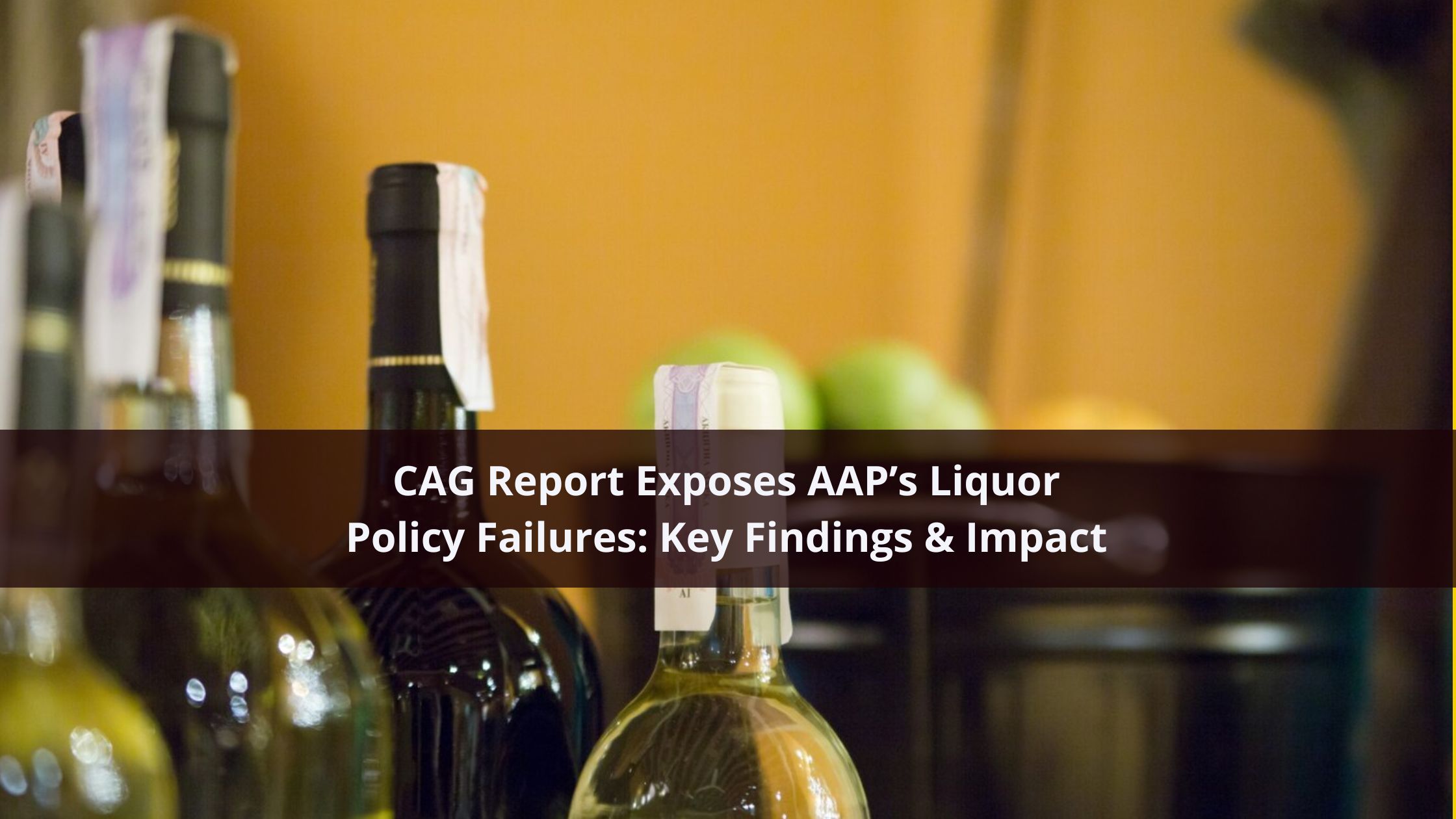AAP’s Liquor Policy Under Scrutiny: What Went Wrong?
The Delhi government’s now-scrapped Excise Policy 2021-22 has come under intense scrutiny, with a recent Comptroller and Auditor General (CAG) report revealing a massive revenue loss of Rs. 2,026 crore. The report has highlighted serious violations in licensing, pricing transparency, and quality control, raising concerns about the governance and accountability of the Aam Aadmi Party (AAP) administration.
But what exactly went wrong with the liquor policy? Why did it fail despite being introduced as a reform-oriented approach to the alcohol industry in Delhi? Let’s take a deep dive into the key findings, controversies, and the impact of this excise policy.
1. The Excise Policy 2021-22: A Controversial Shift
The AAP government had introduced the new excise policy in 2021, claiming that it aimed to:
- Increase revenue generation for the government
- Reduce corruption in the liquor trade
- Improve consumer experience by modernizing liquor shops
- End monopolies and promote fair competition
However, instead of achieving these goals, the policy led to chaos, regulatory lapses, and financial losses. The CAG report has pointed out that the policy was flawed from the very beginning, with its design, licensing process, and implementation riddled with inconsistencies and irregularities.
2. Key Violations & Loopholes in the Policy
The CAG audit has exposed several critical flaws in how the Delhi Excise Department managed the liquor trade during AAP’s tenure. Here’s a breakdown of the most alarming findings:
A) Licensing Violations & Monopoly Concerns
- Licenses Issued Without Proper Scrutiny: Many liquor businesses were granted licenses without verifying their financial records, background checks, or solvency status.
- Cartelization of Liquor Trade: The policy allowed related entities to hold multiple types of liquor licenses, leading to a monopoly-like situation where a handful of players controlled the market.
- Unfair Brand Favoritism: The lack of transparency in issuing wholesale and retail licenses led to favoritism towards certain brands, raising concerns about undue benefits to select businesses.
B) Transparency Issues in Pricing & Revenue Losses
- Discretionary Pricing by Wholesalers: The policy allowed wholesalers to set their own liquor prices, leading to price manipulation, hidden profits, and huge losses in excise revenue.
- Rs. 2,002 Crore Lost in Implementation Failures: The Delhi government failed to retender surrendered licenses, leading to a loss of Rs. 890 crore, while rs. 941 crore was lost due to undue exemptions given to zonal licensees.
- Unjustified Financial Waivers: Despite strict contract terms, the government waived Rs.144 crore in license fees due to COVID-19 restrictions, further reducing state revenue.
C) Lapses in Enforcement & Quality Control
- Failure to Prevent Liquor Smuggling: The Excise Intelligence Bureau (EIB) was ineffective, and its role remained limited to just recording cases of smuggling rather than preventing them.
- No Proper Barcode Tracking System: The Excise Supply Chain Information Management System (ESCIMS) was supposed to track liquor sales, but it failed to ensure scanning at retail points, making it easier for businesses to sell non-duty-paid liquor.
- No Proper Liquor Testing Mechanism: The policy ignored key quality control measures, like mandatory batch testing of liquor and the implementation of secure excise labels to prevent counterfeit sales.
3. The Aftermath: Policy Scrapped & Legal Troubles
As allegations of corruption and financial mismanagement started surfacing, the Delhi government decided to scrap the Excise Policy 2021-22 in August 2022. However, the damage had already been done. The controversy led to:
- Multiple legal investigations into alleged corruption in the liquor licensing process
- Arrests of top officials and liquor traders involved in the implementation of the policy
- A political showdown between the Delhi government and the opposition, with allegations of misuse of power
- The Rs. 2,026 crore loss to the exchequer became a major setback for the AAP government, tarnishing its clean governance image and inviting sharp criticism from the public and political rivals.
4. Lessons Learned: What’s Next for Delhi’s Liquor Trade?
With the scrapping of the policy, the Delhi government reverted to its old excise policy and took control over wholesale liquor trade once again. However, the policy debacle has raised crucial concerns about:
- The need for stronger regulatory oversight to prevent corruption and monopolies
- More transparent and competitive pricing mechanisms to maximize state revenue
- Stricter enforcement of licensing rules to prevent brand favoritism and unfair trade practices
- A robust tracking system to prevent liquor smuggling and black-market trade
The controversy has also triggered national discussions on how state excise policies should be formulated to balance revenue generation, consumer safety, and regulatory efficiency.
Conclusion
The Delhi Excise Policy 2021-22 was introduced with promises of transparency and better governance, but its poor execution, licensing violations, and financial mismanagement turned it into a scandal. The Rs. 2,026 crore loss to the public exchequer has not only raised serious concerns about accountability but also left the AAP government struggling to defend its actions.
